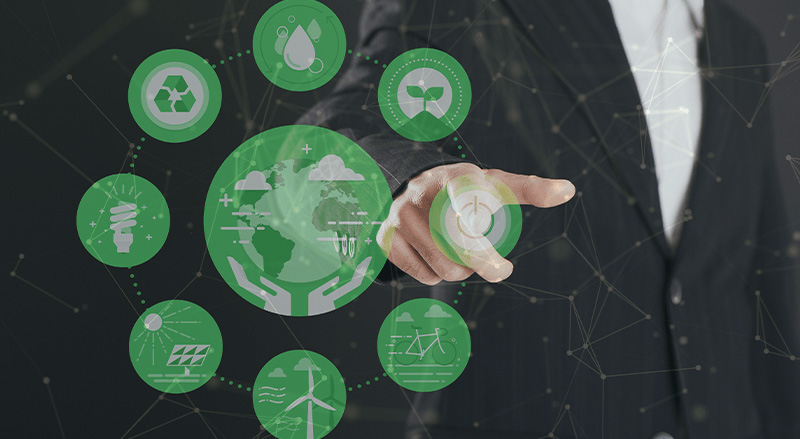Blockchain technology is often criticised for its high energy use and the effect it could have on the environment. While most blockchains do have a poor record in terms of their energy efficiency, the BSV blockchain is the most energy-efficient blockchain, but also boasts many applications with a particular environmental focus.
WeatherSV – climate data immutably stored on the BSV blockchain
Built on the BSV blockchain, WeatherSV allows people all across the world to pay a small amount of BSV to open up weather channels. How does that help the world get better? You pay to be able to record a stream of data – weather conditions, climatic data – to the BSV blockchain. The data relates to a particular city, and that data is written permanently to the blockchain and publicly available.
For example, you can record data according to a certain frequency, for example every hour. The data is now available on a public blockchain. Over time, WeatherSV is intending to create data marketplaces so that researchers, government organisations, private companies who are using, for example, climate control devices, devices in buildings, wearable devices to actually have a universal source of information that people can look to to access weather data. When there are disputes, as there are in today’s world about climate change and whether data is really accurate or not, this provides a source of data.
And because it’s on a public blockchain, everyone can access it and whoever owns that data – which would be you if you’re the one who paid to write the data to the chain for your city – can actually receive small payments in BSV because the data is now publicly accessible and can be monetised.
RecycleSV – interactive waste management and personal carbon footprint monitor
Another example is RecycleSV, also built on the BSV blockchain, which is using data to create incentives for people to recycle.
It works via a mobile app. If you take a can or a bottle with its codes that are available on it, either a bar code or a QR code, you can scan the item and then can confirm it’s been dropped off at a recycling location, which is also scanned. As a result, you can track the number of recycling things you’ve done, points you earn, and in return as a consumer, you can receive tokens or even small amounts of BSV.
It’s creating an actual immediate financial incentive to recycle. And the fact that you recycle a particular item can be verified and audited on a public blockchain. That creates better data with respect to recycling, which is helpful for planning.
Predict Ecology – an environmental and ecological consulting firm with a focus on real-world data and predictive modelling
Predict Ecology is led by Daniel Keane from Australia – an environmental scientist who has been thinking about how to use data to better improve our environment. Keane has created a project which is tracking trees across the city of Cairns in Australia by putting IoT sensors on trees to record all types of data.
For example, you can record and track carbon dioxide absorption of a particular tree. And then, using different values, estimate how much energy savings could be generated if people preserve that tree and it contributes more oxygen to the city. It records all of that data to a public blockchain so that the city, researchers, and businesses who are working on solutions to improve the environment can access and pay for that data. The city can even monetise that data.
Extreme scale data environments will be the new normal
Endpoints for IoT devices are going to explode. It’s estimated that by 2024, 83 billion endpoints will exist all over the world. We’ll be swarmed with IoT devices that create all kinds of opportunities to gather data but most importantly to monetise it and create incentives for us as people to do better for our environment.
BSV – the blockchain for environmental sustainability
If we want to achieve the environmental sustainability goals of the world with blockchain technology, we’ll need a blockchain that scales to handle huge amounts of transactions; from weather data to traffic data, environmental data and more.
All of this data has value and which is best monetised on a network that can scale to keep up with the demand.
The BSV blockchain fuses the power of data and money into one and creates a system to allow people to not just have the data, but optimise it with money and monetary value. Because it’s financially incentivised and recorded on a tamper-proof record, it can drive the honest environmental sustainability programmes the world is yearning for.
